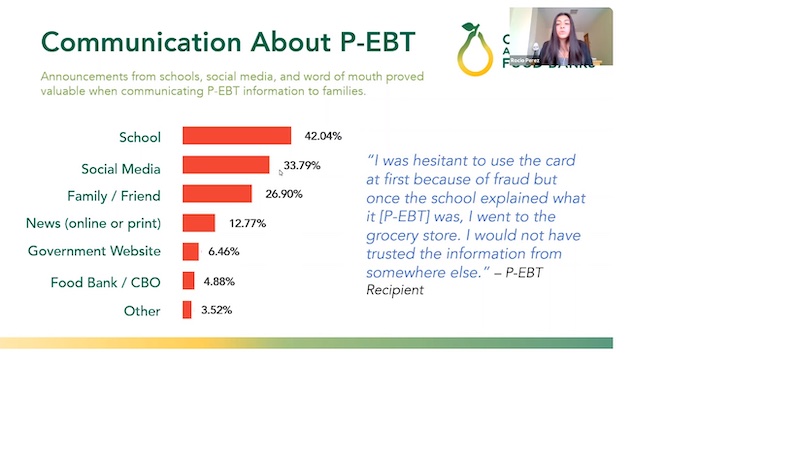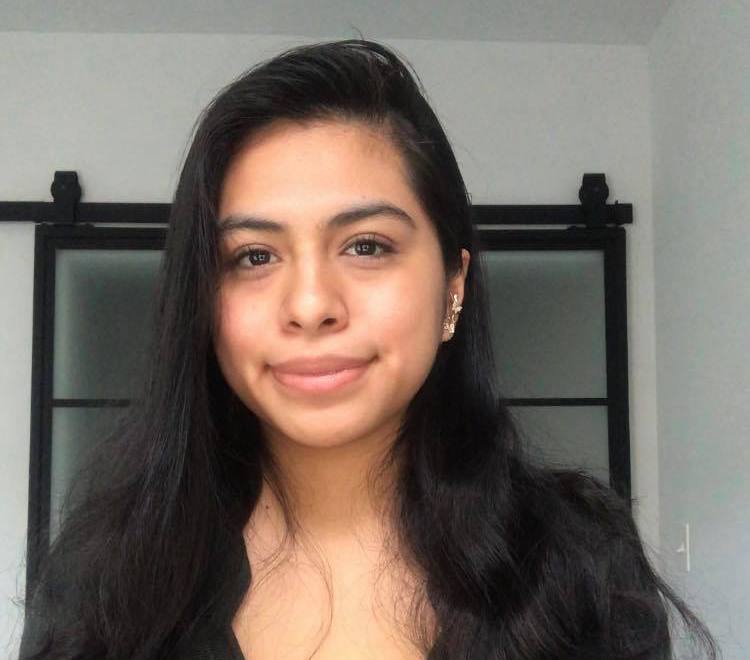Above: Rocio Perez, 27th Class Emerson Fellow.
As a first-generation Latina from the Westlake/McArthur Park neighborhood in Los Angeles, I grew up in a low-income area with a predominantly immigrant community where I had to learn how to navigate legal, education, and health barriers for the wellbeing of my family. We constantly experienced financial instability and food insecurity because our paycheck-to-paycheck income was insufficient to meet our rent, bills, and groceries. Working in garment factories as undocumented immigrants under an exploitative piece rate system and unsanitary working conditions, missing doctor’s appointments and unable to afford medication, my family’s health was constantly jeopardized. Throughout college, I worked full time to financially assist my family and pay for my education because even with financial aid, college was very expensive.
I hold my personal experiences close to me because they drive my public service career to advocate for immigrant rights in all social, political, and economic aspects of society. I decided to apply for the Bill Emerson National Hunger Fellowship because it places people directly affected by issues to lead conversations on issues that affect their communities. I wanted to explore the intersectionality of immigrant rights in health policy and engage in research that could influence legislation towards increasing healthcare access for all immigrants.
Working alongside the California Association of Food Banks (CAFB), I designed and led a research project focused on Pandemic EBT (P-EBT) in California, including the impact of P-EBT in fighting hunger, challenges recipients may have experienced, and lessons learned to guide policy recommendations. The unprecedented circumstances the pandemic created for families was a product of structural barriers and outdated infrastructure that was incapable of responding to the demand of food insecurity. Policy advocates have long warned about the consequences that lack of equitable food policies and funding could cause.
Through a combination of a survey and key stakeholder and P-EBT recipient interviews, my research project aims to provide insights into both the circumstances P-EBT recipients’ families are living in and the impact of P-EBT as one of many vital programs needed to fight hunger for children and families during the COVID-19 pandemic and beyond, including school meals, CalFresh, WIC, and other critical supports. Interviews with P-EBT recipients were confidentially conducted in English, Spanish, and Chinese. To capture the bigger picture of the design, implementation, and execution of P-EBT, I conducted 12 interviews with stakeholders with a variety of expertise related to P-EBT, including state program administrators, CalFresh application assisters at food banks, school Nutrition Service Department representatives, and policy advocacy organizations. As for the survey, we received over 1,000 responses from P-EBT recipients.
One of my focuses was examining the pervasive chilling effects of the “public charge” rule during the pandemic, and mixed-status families’ perceptions of California’s food assistance programs. Due to discriminatory and exclusionary policies, undocumented immigrants are barred from safety net programs such as CalFresh. P-EBT was able to serve immigrant and mixed status families because it was based on school-aged children’s eligibility for free or reduced-price school meals and did not have an immigration status requirement. P-EBT was a critical food resource for immigrant families, who to this day are one of the populations navigating the burden of the pandemic with very few public benefit resources to support them. As part of a mixed-status family who was purposely excluded from any COVID-19-related relief, I had a personal connection and responsibility to elevate the realities of my community.
Throughout my research project, I had the honor of presenting my findings at the Center on Budget and Policy Priorities’ Virtual SNAP Policy Conference, led a legislative briefing of my research at the California State Capitol for legislative directors, and spoke with other food policy advocates interested in replicating my project in their respective states. These opportunities have been on my bucket list as a future policy analyst and were made possible by the autonomy and support I received at my field placement. My supervisors at CAFB allowed me to take lead on the research design while checking in throughout the process, and supported me by proofreading my report, scheduling presentation opportunities, and reassuring me that I am the expert on the project. As someone who is constantly trying to navigate imposter syndrome and further my career, it is difficult when I do not have a supportive environment to exercise my potential. My field placement gave me what I needed and more to both work towards my goals and end childhood hunger.
My project has taught me that P-EBT was a temporary bandage for the inequities exacerbated by the pandemic; these inequities will continue to exist if we do not move forward. Let’s take the lessons learned from the design of P-EBT and the developments of the pandemic to update existing food programs and policies that meet families where they are.
 Special thanks to The Kroger Co. Foundation for their sponsorship of this placement of Emerson National Hunger Fellows in California.
Special thanks to The Kroger Co. Foundation for their sponsorship of this placement of Emerson National Hunger Fellows in California.
Below: Rocio Perez delivers a briefing on P-EBT via Zoom with the California Association of Food Banks.


